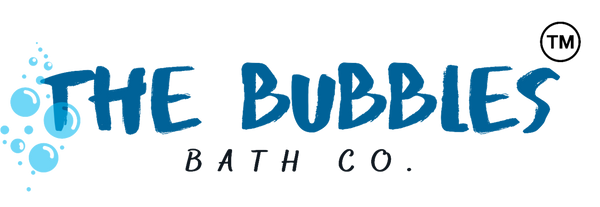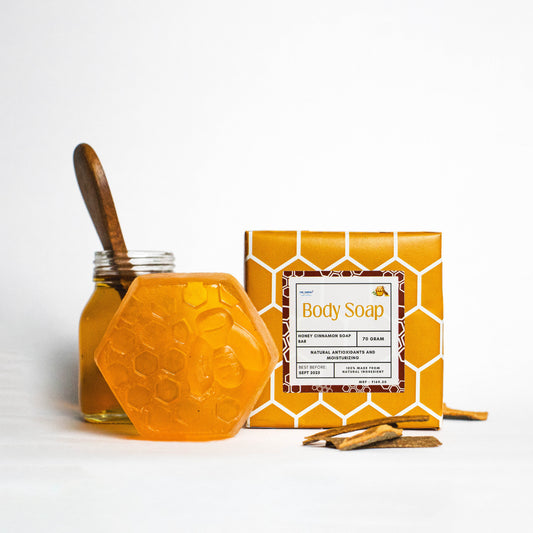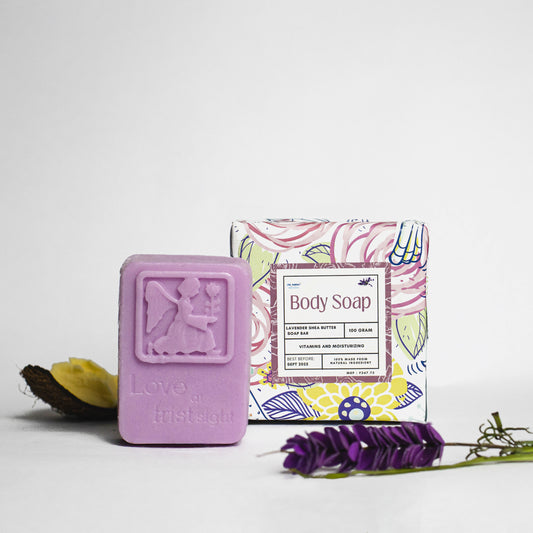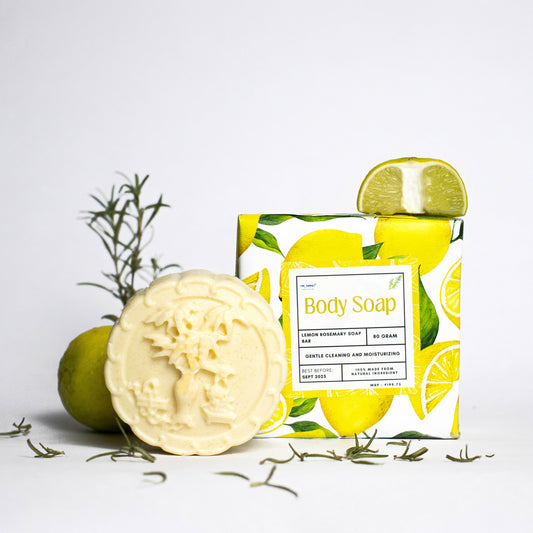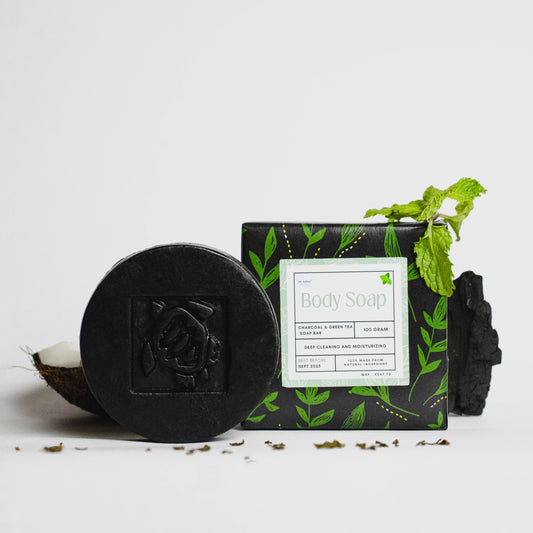Table Of Content
DIY Soap Recipe to Try Making at Home
Organic Lavender Oatmeal Vegan Soap
Working With Lye (Sodium Hydroxide and Potassium Hydroxide)
Welcome to The Bubbles Bath Co. - your destination for luxurious and sustainable bath products. Today, we're diving into the world of vegan soap, exploring its origins and benefits, and even giving you a step-by-step guide to creating your own organic vegan soap at home. Whether you're a seasoned vegan soap enthusiast or just starting to explore the world of eco-friendly skincare, this guide has something for everyone.
What is Vegan Soap?
Vegan soap is a skincare product that is made entirely from plant-based ingredients, excluding any animal-derived substances. This means no animal fats or by-products are used in its production. Vegan soap is not only a great option for those following a vegan lifestyle but also for anyone who cares about animal welfare and the environment. With the rising demand for cruelty-free and sustainable products, vegan soap has quickly gained popularity as a fantastic alternative to traditional soap.
A Brief History of Bar Soap
The use of soap dates back to ancient civilisations, with records of soap-making traced to the Babylonians around 2800 BC. However, bar soap as we know it today became more prevalent in the 19th century when the process of creating soap from fats or oils and an alkali (like lye) was refined. Over time, various ingredients were added for scent and texture, paving the way for a wide range of soap options.
How Is It Made?
Vegan soap, just like traditional soap, is made through a process called saponification. This chemical reaction involves combining fats or oils with an alkali, such as sodium hydroxide or potassium hydroxide. At The Bubbles Bath Co., we use a carefully crafted blend of natural and organic plant-based oils to create our vegan soaps. The soap mixture is then poured into moulds, where it undergoes a curing process for several weeks, allowing excess moisture to evaporate and the soap to harden.
Benefits of Using Vegan Soap
- Gentle on Skin: Vegan soap is often formulated with nourishing ingredients that can be gentle on various skin types, making it a great option for those with sensitive skin.
- Cruelty-Free: By choosing vegan soap, you're making a conscious decision to support products that haven't harmed animals during their production.
- Environmentally-Friendly: Vegan soaps typically have a lower environmental impact due to the absence of animal agriculture. They are also less likely to contain harmful chemicals.
- Natural Ingredients: Many vegan soaps use natural, organic ingredients that can provide additional benefits beyond just cleansing, such as moisturising and soothing properties.
- Scent Variety: The use of essential oils and plant-based fragrances allows for a wide range of scents, catering to different preferences.
- Eco-Friendly Packaging: At The Bubbles Bath Co., we are committed to reducing waste, so our packaging is designed with the environment in mind.
DIY Soap Recipe to Try Making at Home
Organic Lavender Oatmeal Vegan Soap
Ingredients:
- 200g coconut oil
- 150g olive oil
- 150g shea butter
- 50g castor oil
- 75g sodium hydroxide (lye)
- 180ml water
- 1/2 cup colloidal oatmeal
- 2 tablespoons dried lavender buds
- 20-30 drops of lavender essential oil
Directions:
- Safety First: Make sure to wear protective gear like gloves and goggles when working with lye.
- Prepare the Lye Solution: Carefully add the lye to the water while stirring in a well-ventilated area. Allow it to cool.
- Melt and Mix: Melt coconut oil, olive oil, shea butter, and castor oil together. Let the mixture cool to room temperature.
- Blend: Add the lye solution to the oil mixture and use a stick blender to combine until a trace is reached (when the mixture thickens).
- Incorporate Additives: Stir in colloidal oatmeal, dried lavender buds, and lavender essential oil.
- Mould: Pour the mixture into soap moulds and tap them gently on a surface to remove air bubbles.
- Cure: Allow the soap to cure in the moulds for about 24-48 hours. Afterwards, unmold and let it cure for 4-6 weeks in a cool, dry place.
Working With Lye (Sodium Hydroxide and Potassium Hydroxide)
Lye is an essential component in soap-making, but it requires careful handling. Always follow safety precautions:
- Work in a well-ventilated area.
- Wear protective gear, including gloves and goggles.
- Add lye to water, not the other way around, to avoid splattering.
- Keep children and pets away from the workspace.
FIRST AID TREATMENT:
- Inhalation: Move to fresh air.
- Skin Contact: Rinse thoroughly with water.
- Eye Contact: Flush with cool water for at least 15 minutes.
- Ingestion: Drink water and seek medical attention.
Got Questions? Give Us a Shout!
If you're feeling inspired to explore the world of vegan soap-making, we're here to help! The Bubbles Bath Co. is dedicated to crafting high-quality organic vegan soaps that are both luxurious and eco-friendly. Check out our website at thebubblesbathco.com for a selection of our products, including a variety of scents and formulations to suit your preferences.
Whether you're a seasoned soap maker or a complete beginner, experimenting with vegan soap recipes can be a rewarding and fulfilling experience. The journey to creating your own soaps allows you to tailor the ingredients to your liking and gives you a deeper appreciation for the art of soap-making.
So go ahead, dive into the world of vegan soap creation, and let your creativity bubble to the surface!
Frequently Asked Questions
- Which Soaps Are Vegan?
Vegan soaps are those that are crafted entirely from plant-based ingredients. This means they do not contain any animal-derived substances, such as animal fats, milk, or honey. The primary components of vegan soap include various plant oils, butter, and natural additives. Always check the ingredient list to ensure that the soap you're interested in is indeed vegan.
- Is Vegan Soap Safe?
Absolutely. Vegan soaps are generally safe for use, especially when made by reputable brands like The Bubbles Bath Co., which prioritise high-quality, skin-loving ingredients. However, as with any skincare product, individual sensitivities can vary. It's a good practice to perform a patch test before using a new soap, especially if you have sensitive skin or allergies.
- What is Not Vegan in Soap?
Non-vegan ingredients that can be found in some traditional soaps include animal fats (like tallow), milk and milk derivatives (such as goat milk), and honey. These ingredients are avoided in vegan soap production to ensure the product is cruelty-free and suitable for those following a plant-based lifestyle.
- Is Body Shop Bar Soap Vegan?
The Body Shop offers a range of products, and some of their bar soaps are indeed vegan. It's advisable to check the labelling or the product's description on their website to identify which specific bar soaps are vegan. Companies like the Body Shop often provide clear labelling to make it easier for customers to identify vegan-friendly products.
- Is Body Wash Vegan?
Body wash products can vary in their formulations. Some body washes might contain animal-derived ingredients or by-products, while others are formulated to be vegan-friendly. To ensure that you're using a vegan body wash, review the ingredient list or look for products that are explicitly labelled as vegan.
- Which Products Are Vegan?
Numerous skincare and beauty products can be vegan, including soaps, shampoos, conditioners, lotions, and makeup. Companies that offer vegan products typically highlight this information on their packaging or website. For instance, The Bubbles Bath Co. specialises in crafting organic vegan soaps and offers a range of vegan-friendly bath products.
- Why Choose Vegan Soap?
Choosing vegan soap aligns with a commitment to animal welfare and environmental sustainability. Vegan soaps often use natural and organic ingredients that are gentle on the skin and avoid harsh chemicals. By opting for vegan soap, you're supporting cruelty-free practices and reducing your ecological footprint.
- Is Coconut Milk Soap Vegan?
Coconut milk soap can be vegan if it's made without any animal-derived ingredients. Coconut milk itself is plant-based, making it a popular choice for those seeking vegan-friendly skincare options. Always ensure to verify the ingredient list to confirm that the soap is free from animal-derived substances.
- Is Body Shop All Vegan?
While the Body Shop offers a variety of vegan products, not all of their products are vegan. They have taken steps to label their vegan products clearly, making it easier for customers to identify which items align with their preferences. Check their website or product labelling for accurate information about individual products.
- Is Everyone Hand Soap Vegan?
Everyone Hand Soap is known for its commitment to using plant-based ingredients and avoiding animal-derived substances. As of my last knowledge update in September 2021, Everyone Hand Soap is a brand that offers vegan-friendly products. However, I recommend checking their current product labelling or website for the most up-to-date information.
We hope these frequently asked questions have shed light on the world of vegan soap and its many benefits. Remember that choosing vegan skincare products is a wonderful way to make a positive impact on animals, the environment, and your own well-being. If you have further questions or are interested in exploring a variety of organic vegan soaps, be sure to visit thebubblesbathco.com for a selection of luxurious and sustainable bath products.
